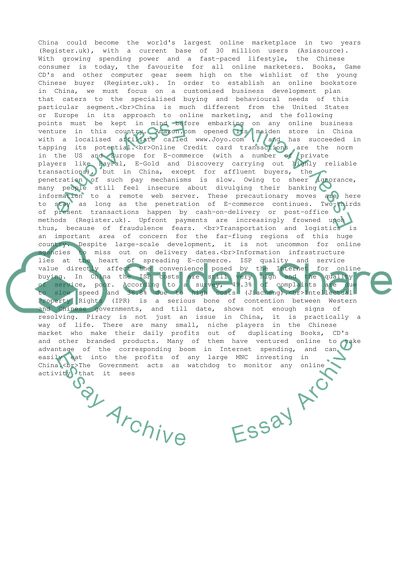Cite this document
(“Building online bookstore for Chines market Assignment”, n.d.)
Retrieved from https://studentshare.org/business/1526049-building-online-bookstore-for-chines-market
Retrieved from https://studentshare.org/business/1526049-building-online-bookstore-for-chines-market
(Building Online Bookstore for Chines Market Assignment)
https://studentshare.org/business/1526049-building-online-bookstore-for-chines-market.
https://studentshare.org/business/1526049-building-online-bookstore-for-chines-market.
“Building Online Bookstore for Chines Market Assignment”, n.d. https://studentshare.org/business/1526049-building-online-bookstore-for-chines-market.


